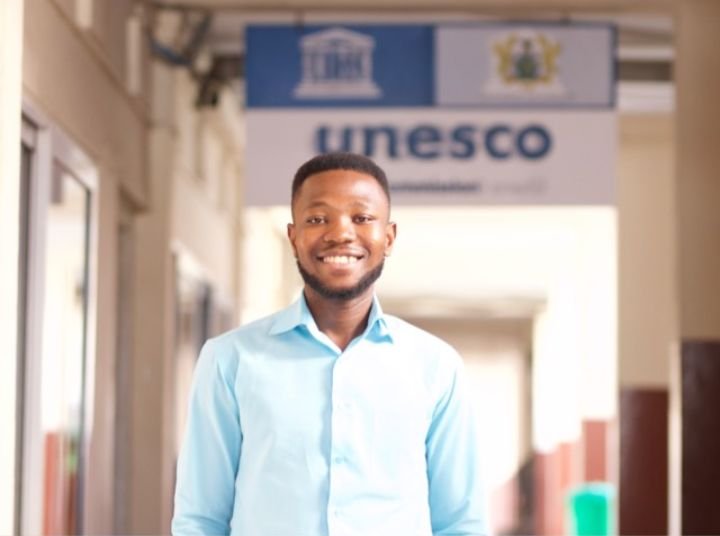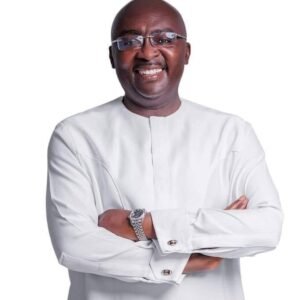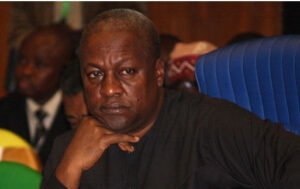
The writer
Ghana is gearing up for a crucial election in December 2024, an opportunity to test the litmus of our beloved democracy once again. The election will mark the eighth consecutive time that the country will hold peaceful and democratic polls since its return to multiparty democracy in 1992.
However, this year’s election is also predicted to be one of the most competitive and contentious in the country’s history, as the two leading presidential candidates – former President John Dramani Mahama of the National Democratic Congress (NDC) and the current Vice President and flagbearer of the ruling New Patriotic Party (NPP), Dr. Mahammud Bawumia – both hail from the Northern part of the country and have a history of rivalry and animosity.
Mahama, who was president from 2012 to 2016, is seeking a comeback after losing to the incumbent President Nana Akufo-Addo in 2016 and 2020. He is widely seen as charismatic, compassionate, and visionary but also faces criticism for his handling of the economy, corruption, power crisis, and security issues during his tenure. Bawumia, who has been vice president since 2017, is hoping to succeed his boss Akufo-Addo, who is constitutionally barred from seeking a third term.
Digital Bawumia
He is widely regarded as technologically driven, and some even call him the “Digital Vice President”, articulate, and innovative but also faces questions about the current state of our economy as head of the Economic Management Team, religious background (especially as the country is Christian-dominated: not surprising he has been moving from one church to the other), and the corruption and scandals recorded during his time in government with Akufo Addo.
The election is expected to be a close contest, as both candidates have strong support bases and appeal across the country. According to polls conducted by Musah Dankwah and his Global Info Analytics, a reputable research firm, the election is too close to call, with both candidates having a significant percentage of the votes, and the undecided and swing voters supporting other candidates. The polls also indicate that the election will be largely influenced by the performance of the economy, the management and handling of corruption-related issues, and the delivery of social services and infrastructure.
However, the election is also likely to be shaped by another factor: communication and information. With the advent of pluralism in media, widespread internet penetration, and social media activism in the country, the election will be based on who can communicate and share their ideas more clearly, convincingly, and creatively than cynicism. Media and Information Literacy (MIL) will be a critical element in determining the claims by politicians, the veracity of information, and the accuracy of statements by politicians to make informed decisions on voter choices.
MIL is defined by UNESCO as “the ability to access, analyze, evaluate, create, and act upon information and media content in various forms and contexts”. MIL is essential for citizens to participate effectively in democratic processes, exercise their human rights, and promote social justice and development. MIL is especially important in the context of elections, where information and media play a vital role in shaping public opinion, influencing voter behavior, and ensuring accountability and transparency.
Challenges/Threats
The challenges and threats in the digital age, such as misinformation, disinformation, propaganda, hate speech, cyberattacks, and digital surveillance, are enormous. These phenomena can undermine the credibility and quality of information and media and manipulate or deceive the public. They can also fuel polarization, violence, and instability and erode trust and confidence in democratic institutions and processes.
Misinformation and disinformation are two terms that are often used interchangeably but have different meanings and implications. Misinformation is false or inaccurate information that is unintentionally or inadvertently created or spread, without malicious intent. Disinformation is false or misleading information that is intentionally or deliberately created or spread, with malicious intent. Both misinformation and disinformation can have harmful consequences for individuals and society, especially in the era of artificial intelligence (AI), which can generate and disseminate realistic and convincing content at scale and speed.
AI is a broad term that refers to the use of machines or systems that can perform tasks that normally require human intelligence, such as learning, reasoning, and decision-making. AI can be used for various purposes, such as education, health, entertainment, and security. However, AI can also be used for nefarious purposes, such as creating and spreading fake news, deepfakes, bots, and trolls, which can influence public opinion, manipulate emotions, and sway votes.
Suggestions
Therefore, it is imperative for the electorates to stay informed and updated on verified news and information and to verify the information themselves. Here are some suggestions on how to do so:
•Use multiple and diverse sources of information and media, and compare and contrast them for consistency and reliability. Avoid relying on a single or biased source, or echo chambers that reinforce your existing views and preferences. Refer to fact-check organizations such as Dubawa Ghana, Fact-check Ghana, and other reliable sources.
• Check the source, author, date, and purpose of the information and media content, and verify their credentials, reputation, and agenda. Beware of anonymous, outdated, or sponsored content, or content that lacks evidence, references, or citations.
• Evaluate the accuracy, relevance, and completeness of the information and media content, and look for facts, data, and logic that support or contradict them. Beware of opinions, rumors, speculation, or emotions that are presented as facts, or facts that are taken out of context, distorted, or omitted.
• Create and share your own information and media content responsibly and ethically, and respect the rights and dignity of others. Avoid spreading or amplifying false, misleading, or harmful content, or content that violates the law, norms, or values of your society.
• Act upon the information and media content critically and constructively, and use them to inform your decisions, opinions, and actions. Avoid being passive, indifferent, or apathetic, or being influenced by external pressures, incentives, or threats.
Pointers
Additionally, here are five pointers to clarify and verify to some extent what politicians are saying:
• Who created this (the message or information you received)? This can help you identify the source and the author of the message or information, and assess their credibility, expertise, and bias. For example, is the message or information coming from a politician, a journalist, an activist, a friend, or a stranger? What are their qualifications, affiliations, and motivations? How do they know what they are saying?
• For what reason (political, ideological, propaganda etc)? This can help you understand the purpose and the context of the message or information, and evaluate its relevance and significance. For example, is the message or information intended to inform, persuade, entertain, or provoke? What is the main point or argument of the message or information? How does it relate to the current situation or issue?
• Why (to sway voters, to make opponents look bad, etc)? This can help you analyze the effects and the implications of the message or information, and determine its validity and reliability. For example, is the message or information based on facts, evidence, or logic, or on opinions, emotions, or biases? Is the message or information supported or contradicted by other sources or data? What are the consequences or outcomes of the message or information?
• When (is the message an old one, when was it created, is it original, etc)? This can help you verify the timeliness and the originality of the message or information, and avoid being misled or deceived by outdated or recycled content. For example, is the message or information current, recent, or historical? When was the message or information created, published, or updated? Is the message or information original, copied, or modified?
• Where (where was it said)? This can help you locate the source and the medium of the message or information, and check its accessibility and availability. For example, is the message or information from a website, a social media platform, a newspaper, a radio, or a TV? Is the message or information online or offline, public or private, open or restricted? How can you access or obtain the message or information?
Historic/Decisive
The 2024 general election is expected to be a historic and decisive event, as the two leading presidential candidates, Mahama and Bawumia, both from the Northern part of the country, compete for the highest office in the land. The election will not only determine the political and economic direction of the country but also the role and impact of communication and information in the democratic process.
With the proliferation and diversification of information and media sources, especially in the digital age, the electorates face both opportunities and challenges in accessing, analyzing, evaluating, creating, and acting upon information and media content. Media and Information Literacy (MIL) is, therefore, a crucial skill and competency that can enable the electorates to become more informed, engaged, and empowered citizens, and to contribute to a peaceful, free, and fair election, and a vibrant and resilient democracy.
However, MIL also requires awareness, education, and practice, as well as the support and collaboration of various stakeholders, such as the government, the media, civil society, academia, and the international community. By enhancing their MIL skills and competencies, and by following the suggestions and pointers provided in this article, the electorates of Ghana can vote smartly and responsibly in the 2024 election, and make their voices heard and their votes count.
The writer is an MIL Advocate and a National Service Personnel at the Ghana Commission for UNESCO. Email: abubakarisadiq55@gmail.com








